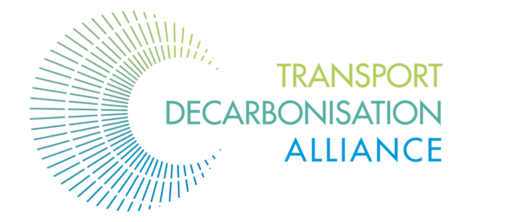CHARGING INFRASTRUCTURE

CoI Charging infrastructure
A zero-carbon transport sector plays a crucial role in the global effort to combat climate change. Transport accounts for 23% of global CO2 emissions, and motorised traffic is expected to double before 2050. This calls for acceleration of global ambition and action to decarbonize our transport system.
That acceleration is partly happening. More and more cities, companies, regions/states and countries set ambitious targets for transport decarbonisation. In the run up to COP26 there is a strong momentum to drive action on transport and accelerate the transition to carbon free transport including through the UK initiated ZEV Transition Council, the Netherlands initiated process on a Global MoU on Zero emission freight and the climate champions led Race To Zero campaign.
Sign the global call to accelerate electric vehicle charging infrastructure
WHY
Those ZEV ambitions can only be realized if they’re matched by the development and roll out of charging infrastructure. Without an adequate charging infrastructure nothing moves and ´grid anxiety´ or economic losses due to insufficient coverage could erode support for EV policy. Both on regional (transborder), national and local level charging infrastructure is a key issue. On local level there is a strong relation to the growing number of zero emission zones that cities establish and to the health benefits of ZEV policies in inner cities. Across the globe there is a growing experience of planning and rolling out charging infrastructure. A number of key issues can be derived from that:
- Timely and integrated planning is key, to create perspective for frontrunners and enable them to market innovations. Planning is also an essential part of ZEV ambitions, in order to establish credible policies and build and maintain support.
- Innovative finance and investment solutions emerge as charging infrastructure offers wider benefits to smart grid development and storage and hub solutions offer greater financing options;
- Standards, protocols are key to ensure open access and coordinate between charging points. Data sharing between public and private sector is one of the challenges.
- Multi stakeholder interaction is key to enable timely (data) exchange, planning and investment; Timely realizing an adequate charging infrastructure by definition requires cooperation between cities, companies and countries, combining national coordination with bottom-up implementation with local partners.
- Capacity building is needed to create the necessary knowledge and skills in all actors involved.
- Post-Covid recovery offers a momentum to boost the infrastructure as part of post-covid recovery.
An ambitious charging infrastructure agenda is therefore a precondition for successfully realizing ZEV ambitions. Yet it is not getting sufficient weight and traction, especially for freight. Timely planning and roll-out are very often not in sync with stated policy ambitions and targets.
WHAT
By setting up a Community of Interest on charging infrastructure within the TDA, frontrunning countries, cities, regions and companies join forces to plan, implement and scale up charging infrastructure in line with ZEV ambitions adopted regionally and globally.
The CoI will focus on charging infrastructure for freight, a segment where challenges are complex and development is in an early stage compared to passenger transport. Linkages with the work of the CoI’s on urban freight and hydrogen can create synergies and maximize impact.
OBJECTIVES
- Promote international political ambition and acknowledgement of charging infrastructure rollout as a precondition for the realisation of zero emission transport
- Promote and support the translation of these ambitions into clear goals, national legislation, spatial planning and concrete action plans with the relevant stakeholders
- Connect national and international ambitions with local realities, creating feedback loops and promoting alignment
- Promote and support implementation by collecting and sharing best practices for others to use
POSSIBLE ACTIVITIES
- Raise the political profile of the pivotal role of the charging infrastructure agenda at COP26 foreshadowing greater attention also in the NDC implementation process
- Global exchange of lessons learned, challenges and solutions resulting in products such as a how-to-guide and/or associated master classes
- Bringing together ambitious countries, cities and companies in a global call for action
